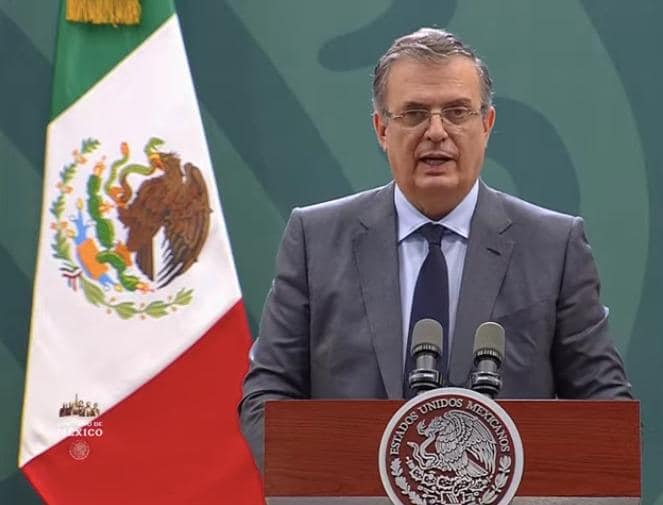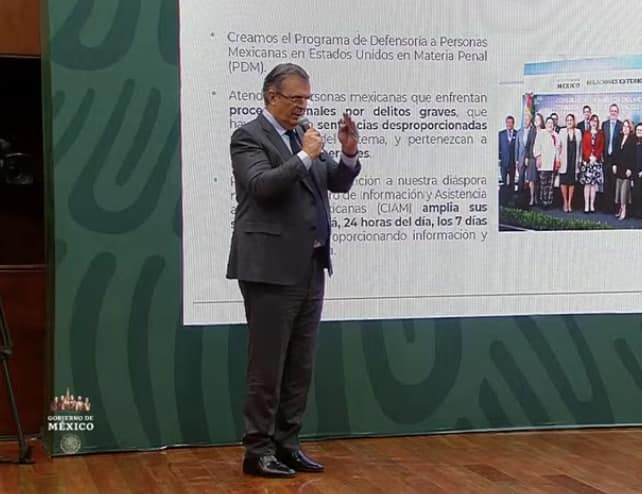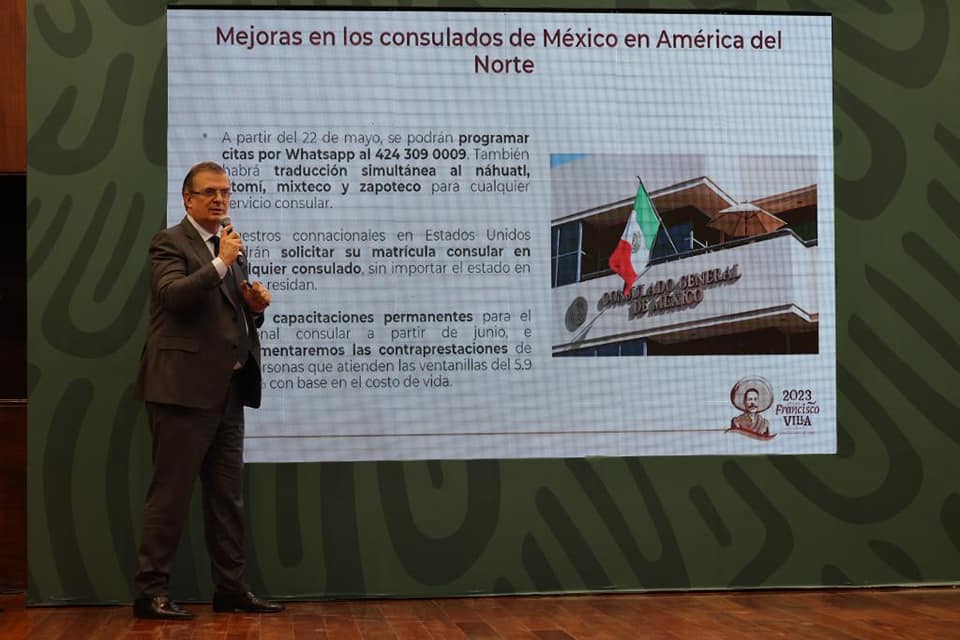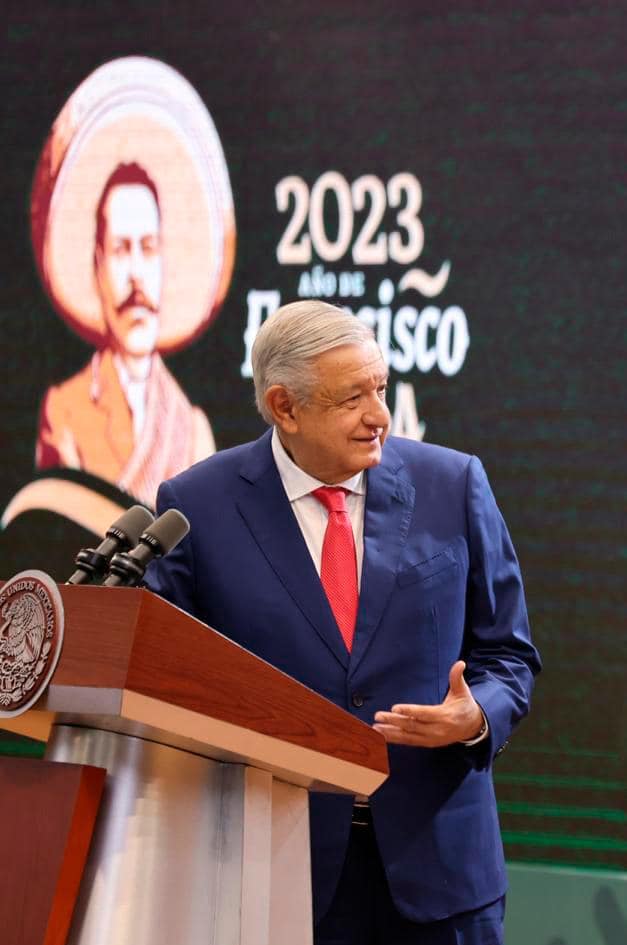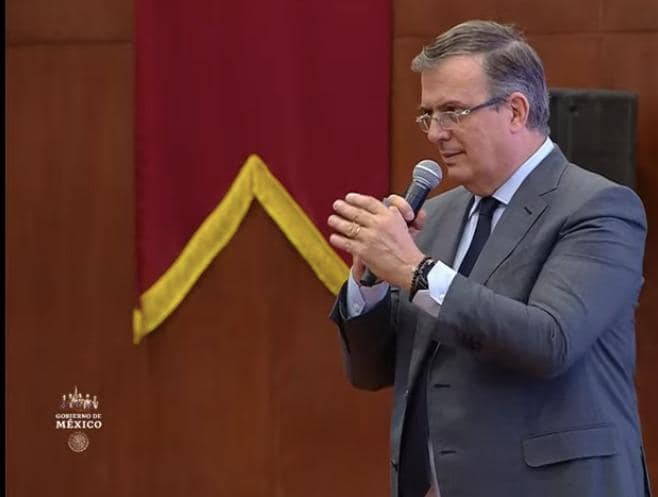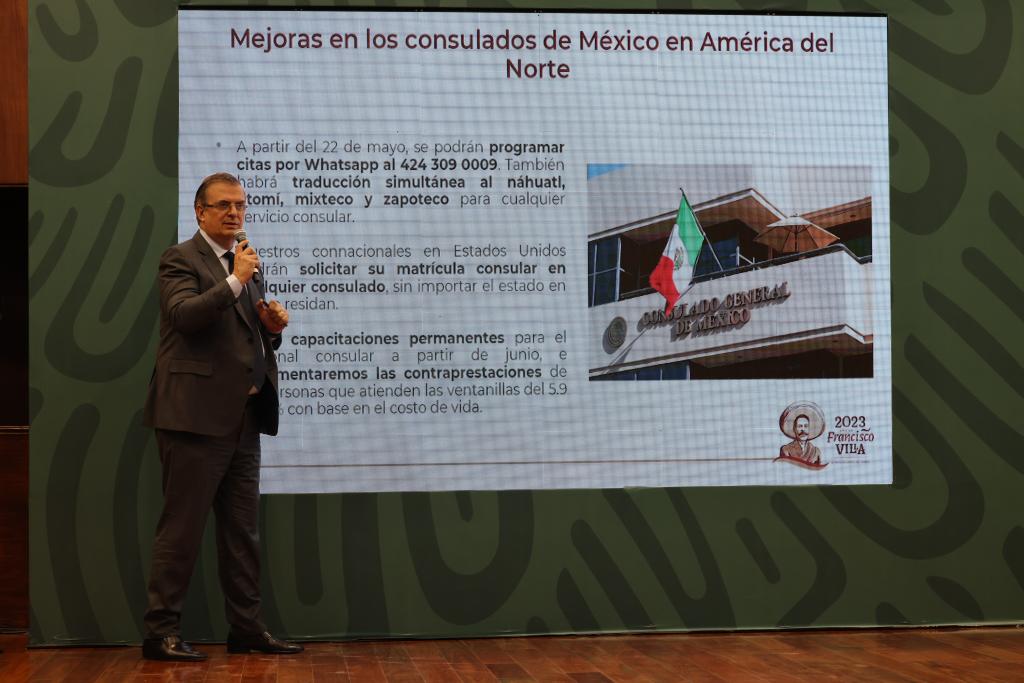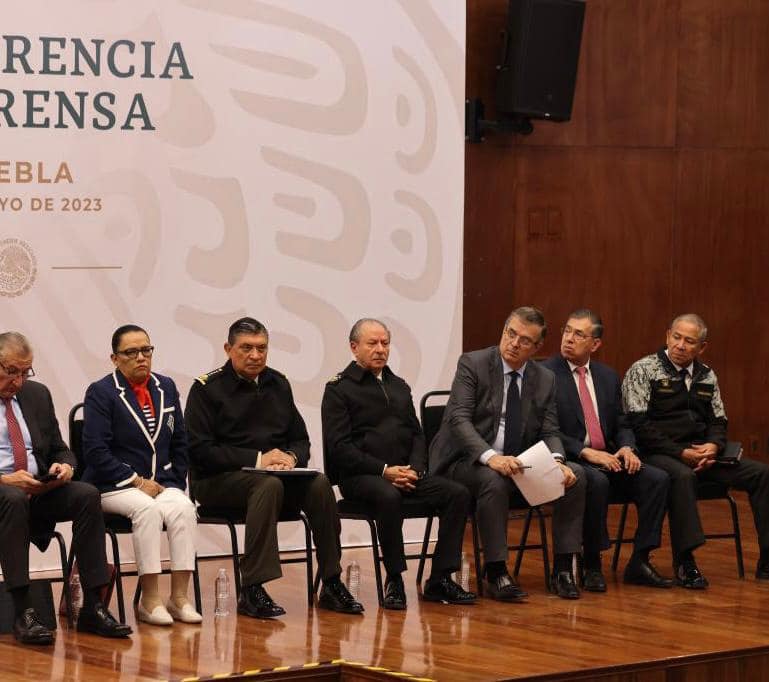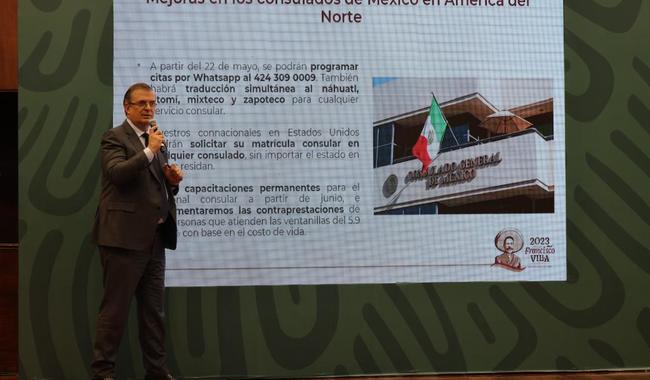- The Foreign Secretary says there are many ways to enter the U.S. in an orderly, safe and regular manner, and urges Mexicans not to risk entering the country without the proper documents.
- From 2022-2023, about 885,000 work permits and visas will be issued to migrants in the U.S.
- Last year, 360,656 H2A and H2B visas were issued to Mexicans in the U.S., the highest number in the history of our country.
At this morning's press conference headed by President Andrés Manuel López Obrador, Foreign Secretary Marcelo Ebrard reported on the immigration status of Mexicans and Central Americans seeking to enter the United States.
The Foreign Secretary said that, from the beginning of the current administration, President López Obrador has said "that regular, legal, documented pathways must be opened for people who have an interest in working in the United States or in family reunification [... ] At the same time, an investment must be made in countries that have economic difficulties so that migration is not forced due to poverty or insecurity.”
Secretary Ebrard recalled that at the 10th North American Leaders' Summit, a memorandum of understanding was signed with the U.S. on labor mobility for the first time in history. "That means that labor mobility is accepted as legitimate, as valid, and that it can be conducted through regular, safe and orderly channels,” he said. He commended President Biden for the inclusion of that provision.
As a result of the agreement, “around 885,000 work permits and visas will be granted to migrants between 2022 and this year. In 2022, we reached 360,656 H2A and H2B visas for Mexicans. This is the highest number in the history of our country […] we hope it will be even a little higher this year.”
Similarly, he said that "there is a record increase in the number of H2B visas for returning workers and nationals of Honduras, Guatemala and El Salvador [...] We are up to 64,716." President López Obrador has prioritized not only the situation in Mexico, but also in Central America, South America and the Caribbean.
Secretary Ebrard reiterated that new humanitarian permits that include formal access to the U.S. job market for people from Cuba, Haiti, Nicaragua and Venezuela were agreed on: 360,000 were agreed for this year, which is an unprecedented number. In addition, there are 100,000 new family reunification permits for people from Honduras, Guatemala and El Salvador, which did not exist before. Another important point is the opening of regional processing centers in Guatemala and Colombia, “because the offer made by many of the so-called coyotes is risky, so regional centers are going to be opened to prevent them from making this trip.''
He said that recently we have seen a very large flow of migrants due to deceitful messaging: “They tell Venezuelans and Central Americans: Hurry up and get to the United States by crossing Mexico, because on May 11 they are going to lift Title 42... since that provision will no longer be in force, now you can go to the United States, and they charge between five and seven thousand dollars per person.”
The Foreign Secretary explained that Title 42 is "a measure taken by the United States for health reasons, due to COVID-19, which says that anyone arriving in the U.S. by crossing the Mexican or Canadian border can be returned immediately for health reasons." However, even if it ceases to be in force, there are other legal provisions.
The Foreign Secretary urged those who are interested in going to the U.S. to use the CBP One application to complete the process. "It allows you to request entry into the U.S. without having to cross one, two, three, four, five, six countries, taking all the risks and getting to the U.S., only to be repatriated or sent to another country.”
People can also go to U.S. embassies or consulates. He insisted that it is not true that, as of May 12, if you enter the U.S. illegally, you may stay there. "This is a scam," he said.
He said that the Mexican government has a jobs portal that is part of the National Employment Service and available to those who want to come work in Mexico. Mexican has many legal ways to make this possible without the need to take risks.
Consular protection
The Foreign Secretary discussed some of the changes made to the Mexican consular services offered in the U.S. Starting on May 22, there will be a WhatsApp number (424 309 0009) for scheduling appointments at Mexico's consulates, and "for the first time in Mexico's history, simultaneous translation is available into Nahuatl, Otomi, Mixtec and Zapotec, as instructed by the President."
The Mexican consular ID card can now be issued at any consulate, regardless of the state in which the applicant resides in the U.S. There will be "a salary increase for personnel who work the transaction counters at our consulates of between 5.9 and 14 percent, on instructions from the President, because they are the personnel who work the most with our fellow Mexicans."
The Foreign Secretary said that the legal defense program for Mexicans involved in criminal cases in the U.S. was created to assist Mexicans charged with serious offenses, since in many cases they receive disproportionate sentences, mainly because they do not have good legal counsel. He said that the success rate with these cases is 98%, especially regarding the death penalty.
Lastly, Secretary Ebrard reported that in Canada the Information and Assistance Center for Mexicans (CIAM) will now operate 24 hours a day, seven days a week.
